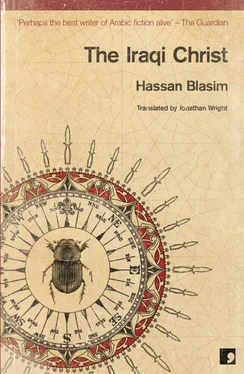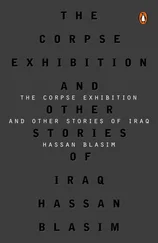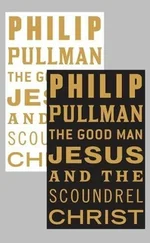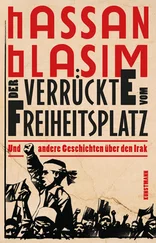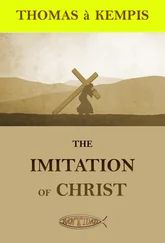‘Go to sleep, Ali, my friend. Go to sleep. There’s no sign tonight. Go to sleep,’ he said to me, and started snoring straight away.
Daniel was always chewing gum. The soldiers baptized him Chewgum Christ. I often imagined that Daniel’s chewing was like an energy source, recharging the battery that powered the screen in his brain. His life’s dream was to work in the radar unit. He had completed secondary school and volunteered to join the air force, but his application was rejected, maybe because his father had been a prominent communist in the seventies. He loved radar the way other men love women or football. He collected pictures of radar systems and talked about signals and frequencies as though he was talking about a romp in the hay with some girlfriend. During the last war, I remember him saying, ‘Ali, humans are the best radar receivers, compared with other animals. You just need to practise making your spirit leave your body and then bring it back, like exhaling and inhaling.’ He had tattooed on his right arm the radar equation:

After Daniel’s hopes of joining the air force were dashed, he volunteered for the medical corps. But he did not give up his passion for radar, and anyone who knew him would not have been surprised by this obsession, because Chewgum Christ was himself the strangest radar in the world. I remember those terrifying nights during the war over Kuwait. The soldiers, as frightened as ducklings, would follow him wherever he went. The coalition planes would be bombing our trenches and we wouldn’t be able to fire a single shot back. We felt we were fighting some ultimate, almighty force. All we could do was dig more trenches and scamper from place to place like rats. In the end we camped near the desert. All we had left was our faith in God and the powers of Daniel the Christian. One night we were eating in the trench with the other soldiers when Daniel started complaining of a stomach ache. The soldiers stopped eating, picked up their weapons and prepared to stand, all of them looking at Daniel’s mouth.
‘I want to lie down in the shade of the large water tank,’ Christ said finally.
The soldiers joined him as he left the trench, jostling to keep close to him as if he were a shield against missiles. They sat around him in the shade. Just thirty-five minutes later three bombs fell on the trench. It wasn’t the only time. Christ’s premonitions saved many soldiers. In Daniel’s company the war played out like the plot of a cartoon film. In the blink of an eye, reality lost cohesion. It fell apart and you started to hallucinate. What could one make, for example, of the way a constant itching in Daniel’s crotch foretold that an American helicopter would crash on the headquarters building? Is it credible that three successive sneezes from Daniel could foretell a devastating rocket attack? They fired them at us from the sea. We soldiers were like sheep, fighting comic book wars.
I heard many rumours that reports on Christ had been submitted to the Supreme Command. But the chaos of those days and the defeat of our army, which was crushed like flies, prevented the authorities paying any attention. There were many stories about the president’s interest in magicians, the occult and people with prodigious powers. They claim it was at his suggestion that so many books on parapsychology were unexpectedly translated in Iraq in the eighties, because he had heard that the advanced countries were developing telepathic techniques and using them for espionage. The president thought that science and the occult were one and the same, they just used different methods to reveal the same secrets. Christ was not boastful about his premonitory powers and did not consider them unusual. He used to tell stories from history about mankind’s ability to foretell the future. I came to the conclusion that Daniel’s melancholia made it impossible for him to take pleasure in the talent he possessed. Even his interest in radar did not bring him pleasure. His ideas about happiness were mysterious. I understood from him that he was frightened by some inner gloom. He thought his talent was just another sign of how impotent and insignificant we are in this mysterious world. He told me that at an early age he read a story by an Iraqi writer whose personality was simultaneously sarcastic and fearful. The hero in the story was swallowed by a shark after a fierce battle in the imaginary river of time. The hero sits trapped in the darkness there and thinks alone: ‘How can I reconcile my private life with my awareness that a world is collapsing in front of my eyes?’ 3‘That’s a question that has weighed on my life. It has kept me awake like an open wound,’ said Christ.
When we woke up the next day the American forces had reached the outskirts of Baghdad. A few hours later they brought down the statue of the dictator. It was a surreal shock. We put on civilian clothes and went back to our families. It was just another war of the blind in which no one in our squadron fired a single shot. After it was all over, I met Daniel several times. He had gone back to live with his elderly mother. When chaos broke out in the country, I visited him in their house in Baghdad. I wanted to speak to him about going back to the army. He said he had hated the dictator but he would not contribute to an army under the auspices of the occupier. After that I didn’t meet him again. I myself returned to the army, and Daniel went back to looking after his mother. He had two sisters who had migrated to Canada years before and his other relatives had left the country one by one, driven away by wars and the madness of sectarian fanaticism. Of his large family, only his mother remained. I found out that Daniel spent most of his time at home reading novels and encyclopaedias, following the news and caring for his mother, who had lost her hearing, her sight and her memory. Old age isolated her from the world. The old woman was incontinent. Christ would change her nappies every few hours. His mother’s death would sever the thread that tied him to the place. He didn’t plan to emigrate. In a long letter, his older sister implored him to leave the country, but Christ was as stubborn as his mother. Both of them rejected the devil’s temptation — to abandon their lost paradise.
After mass one Sunday, Christ took his mother to a local restaurant famous for its kebabs. He liked the cleanliness of the place and the way it set aside seats for children. The restaurant had changed greatly. He couldn’t remember the last time he had been there. Christ chose an empty table in the corner and helped his mother to sit down. The waiter’s good humour cheered him up. The man would mix up the names of the dishes with the names of daily instruments of slaughter. The customers laughed and loved him. He would call out orders such as ‘One explosive, mind-blowing, gut-wrenching kebab. One fragmentation stew. Two ballistic rice and beans.’
Christ asked for one and a half orders of kebab with hot peppers, a glass of ayran 4and a cold juice. The waiter came back with the order and made a joke about inquisitive people. Christ smiled politely. He picked up his mother’s fingers gently and placed them down to feel the hot kebabs and the grilled tomatoes. Then he put them back in place on the edge of the table. He picked up a tasty morsel and pressed it into her mouth, smiling at her with extraordinary, selfless love.
A young man asked if he could sit down at Christ’s table. Stocky in build and with a hard expression on his face, he was probably about twenty. He ordered a kebab with extra onions. He was actually quite handsome but was scratching his neck incessantly like someone with scabies. His eyes shifted from table to table. Daniel moved the plate of salad closer to his mother’s fingers and left her to feel out the vegetables on the plate. He prepared another mouthful for her. The young man watched them stealthily. He seemed eccentric. He kept chewing his piece of meat and trying to swallow it, as tears streamed from his beautiful eyes. Daniel was wary of him. He leaned forward and asked if he could help. He repeated the question but the young man kept his eyes on his plate and did not seem to have heard Daniel. He kept chewing and his tears flowed. He took out a handkerchief, wiped away his tears and cleaned his nose. He looked around the restaurant, then stared into Christ’s eyes. His features changed to reveal another face, as though he had taken off a mask. He grasped the flap of his jacket and pulled it aside like someone baring his chest.
Читать дальше
